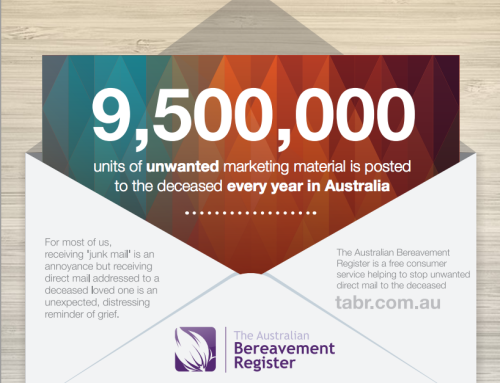Grieving Australians received more than 9.5 million pieces of unwanted mail addressed to their recently deceased loved ones, at an estimated annual cost to business of $17 million, and charities are the worst offenders, according to new figures.
Sydney leads the nation in receiving “ dead letter ” direct mail with an estimated 1.97 million units each year, followed closely by Melbourne with 1.74 million and Brisbane with 756,840.
The figures were revealed in a new Conexum Data Management Services analysis prepared for their free consumer service, The Australian Bereavement Register (TABR), which helps families stop direct mail to the deceased, including all of the associated telemarketing and email contact.
The register is updated daily for marketers to cross-reference with their mailout lists.
“Unfortunately the Australian charity sector is one of the biggest offenders in using out-of-date data for direct mail campaigns pre-Christmas,” Managing Director of TABR, Glenn Harrison, said.
According to Australia Post statistics around 500 million pieces of advertising material are delivered to households each year.
“The charity sector alone accounts for around 14 per cent of this total mail volume. Out of the 9.5 million items of unwanted mail being sent to the deceased each year, Australian charities will be responsible for around 1,425,000 items,” Harrison said.
“At an average unit/mail pack cost of $2.00 each, this means charities are effectively wasting $2,850,000 each year on direct mail that won’t get delivered.”
Harrison said that the typical charity direct mail donor is 65 and over, and charities needed to ensure the data they are using for communicating is accurate and up-to-date.
“Sending an appeal letter addressed to someone who died three years ago should not be happening, but the reality is that it still does,” he said.
“Usually it takes around four months for a name to be fully removed from their mailing files. This means a charity will still be sending on average two or three more appeals and communications to a deceased donor who they know is no longer alive.
“TABR is currently following up with a number of high-profile charities about this on behalf of families who have recently forwarded unwanted mail from charities. The distress in the correspondence from families is obvious.”
*This article first appeared in Pro Bono Australia







